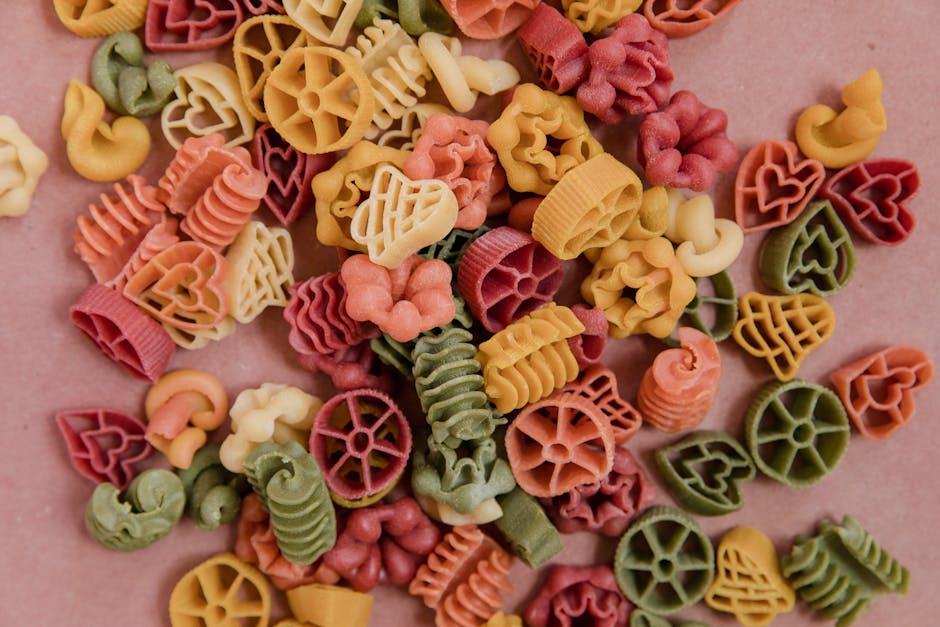In the ever-evolving world of nutrition and weight loss, carbohydrates have often found themselves in the spotlight, sometimes cast as the hero, but more often as the villain. The allure of cutting carbs as a surefire strategy for shedding pounds has captured the imagination of many, from celebrities to everyday individuals seeking a slimmer silhouette. But does the reality of carb-cutting live up to its reputation? As we delve into the science and the stories behind this popular dietary approach, we aim to uncover whether reducing carbohydrates is truly the golden ticket to weight loss, or if it’s just another fleeting trend in the vast landscape of diet fads. Join us as we navigate through the myths, the facts, and the nuanced truths of the carbohydrate conundrum.
Understanding the Role of Carbohydrates in Your Diet
Carbohydrates often find themselves in the spotlight when it comes to weight loss discussions, yet they are a vital component of a balanced diet. The body uses carbs as a primary energy source, converting them into glucose to fuel everything from daily activities to complex bodily functions. Cutting carbs entirely might lead to quick weight loss, but this is often water weight, not fat. Instead of completely eliminating them, consider focusing on the quality and quantity of carbs consumed.
- Complex Carbs: Found in whole grains, vegetables, and legumes, these provide lasting energy and are packed with essential nutrients.
- Simple Carbs: Typically found in sugary snacks and processed foods, these should be consumed in moderation due to their rapid impact on blood sugar levels.
Ultimately, understanding how different carbohydrates affect your body can guide healthier dietary choices. By balancing intake and opting for nutrient-dense options, you can support your weight management goals while ensuring your body receives the energy it needs to thrive.
Exploring the Science Behind Carbohydrate Reduction and Weight Loss
When it comes to shedding those extra pounds, many people swear by the magic of reducing carbohydrate intake. But what is the science behind this dietary strategy? The body typically uses carbohydrates as its primary source of energy. When carbohydrate intake is significantly reduced, the body enters a metabolic state known as ketosis. In this state, it becomes more efficient at burning fat for energy, which can lead to weight loss. This process also causes a decrease in insulin levels, allowing for fat stores to be used as fuel.
- Enhanced Fat Burning: With fewer carbs, the body relies on stored fat for energy.
- Appetite Suppression: Some studies suggest that low-carb diets can lead to reduced hunger.
- Blood Sugar Control: Lowering carb intake can help stabilize blood sugar levels.
However, it’s crucial to remember that the effectiveness of carbohydrate reduction can vary from person to person. Factors such as individual metabolism, lifestyle, and overall diet quality play significant roles in determining how much weight one might lose. While some individuals experience rapid results, others may not see as dramatic changes, highlighting the personalized nature of dietary responses.

Balancing Nutrients: Crafting a Sustainable Low-Carb Meal Plan
Embarking on a low-carb journey doesn’t mean sacrificing essential nutrients. Instead, it’s about discovering a balanced approach that supports your body’s needs while aligning with your weight loss goals. The key to a sustainable low-carb meal plan is diversity and creativity in food choices. Incorporate a variety of proteins such as lean meats, fish, and plant-based options like tofu and legumes. Fats play a crucial role too, with sources like avocados, nuts, and olive oil enriching your meals with healthy benefits.
- Vegetables: Opt for non-starchy varieties like spinach, broccoli, and bell peppers.
- Proteins: Experiment with chicken, salmon, eggs, and lentils for diversity.
- Healthy Fats: Integrate almonds, chia seeds, and coconut oil into your diet.
- Hydration: Remember to drink plenty of water and consider herbal teas to stay hydrated.
Balancing these elements not only keeps your meals flavorful and fulfilling but also ensures you’re not missing out on key nutrients while cutting carbs. Mindful planning and experimenting with recipes can transform a low-carb lifestyle into a nourishing, enjoyable experience.

Practical Tips for Reducing Carbs Without Sacrificing Flavor
- Explore Alternative Flours: Swap out regular flour with almond or coconut flour in your favorite recipes. These options not only reduce carb intake but also add a unique, nutty flavor to your dishes.
- Zoodle It Up: Replace traditional pasta with zucchini noodles or “zoodles.” They’re a low-carb alternative that pairs perfectly with any sauce, ensuring your meals remain satisfying and full of taste.
- Go for Cauliflower Power: Use cauliflower as a versatile substitute for rice, mashed potatoes, or even pizza crust. Its mild taste makes it a perfect canvas for bold spices and herbs.
- Embrace Leafy Greens: Instead of bread or wraps, opt for lettuce or cabbage leaves to hold your fillings. This switch not only reduces carbs but also adds a refreshing crunch.
- Flavor with Herbs and Spices: Enhance your dishes with fresh herbs and spices. They add depth and excitement to your meals without the need for carb-heavy sauces.
By making these subtle changes, you can maintain a delicious and varied diet while keeping your carb count in check. It’s all about finding the right balance and making smart swaps that suit your taste buds.






























